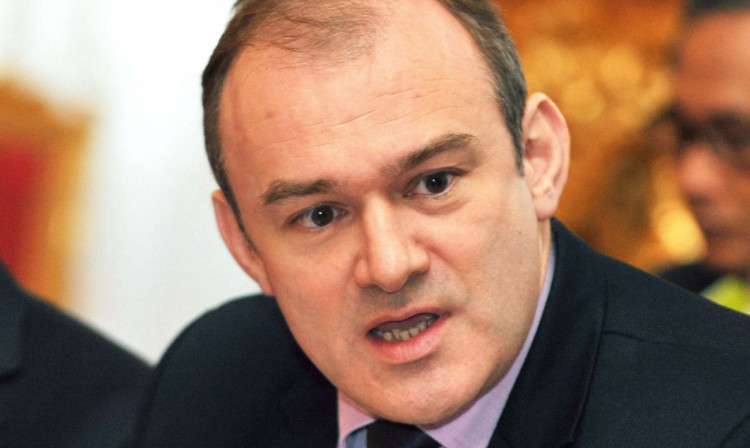The UK’S Energy Secretary has accused the SNP of employing “negative politics of fear and bullying” as he warned bills could rocket by as much as £189 a year in the event of independence.
Ed Davey told an audience of energy industry stakeholders in Edinburgh that, because the single UK energy market is 10 times the size of Scotland’s energy market, Scottish energy bills are lower.
The Liberal Democrat MP turned fire on Scottish Energy Minister Fergus Ewing for claiming that, without Scottish power supplies, the rest of the UK could be plunged into blackouts if there is a Yes vote.
A UK Government analysis document, unveiled by Mr Davey, concluded that Scotland’s energy bills would rise by at least £38 for households by 2020 and £110,000 for medium sized manufacturers without access to Britain’s single market.
If the full costs of supporting large scale Scottish renewables fell north of the border, the total potential increase would be up to £189 for households and £608,000 for businesses.
These figures do not include the costs an independent Scotland would face for its share of decommissioning and legacy costs for old coal and nuclear industries and oil and gas infrastructure.
“Nor do they include the likely increased costs for consumers of reduced competition.
Mr Davey said: “Right across the energy mix, Scotland benefits from being part of the UK’s strong, stable consumer and tax base supporting thousands of jobs, creating new supply chains and cementing the energy sector as the engine room of the economy.”
Mr Ewing pointed to Ofgem warnings from last year that the UK’s margin between supply and demand could be as low as 2% by 2015, with the margin in Scotland sitting at 20%.
The SNP minister added: “Without the single GB market, Ed Davey is in grave danger of becoming the minister who caused both blackouts and higher bills.”
The Westminster paper said that, although Scotland is a net exporter of electricity to the rest of the UK, it only accounted for 4.59% of demand in England and Wales.
Mr Davey said that, if Scotland was independent, it would be one of a number of countries that electricity could be bought from.
He added: “If that (raising the spectre of blackouts) isn’t the negative politics of fear and bullying I don’t know what is.”
